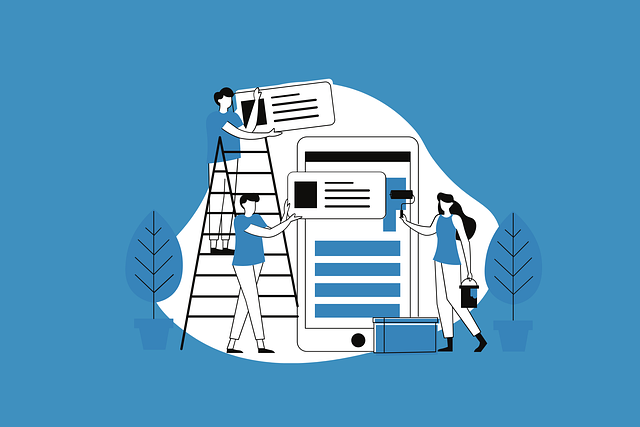AI guest occupancy forecasting is revolutionizing talent acquisition and hospitality by predicting hiring needs through data analysis, streamlining processes like candidate screening, and enabling proactive engagement with top candidates. In hospitality, this technology optimizes room allocation, pricing strategies, and marketing, enhancing profitability and personalized experiences. While AI offers benefits such as enhanced sourcing, screening, and selection, challenges include data privacy, security, ethical use, potential biases, and limited human intuition replication. A balanced approach where AI assists human expertise is crucial for successful automation.
“The future of business talent acquisition is here, driven by Artificial Intelligence (AI) automation. This cutting-edge technology is transforming how companies source and recruit top talent, revolutionizing traditional hiring practices. In this article, we explore the transformative power of AI in talent acquisition, focusing on its role in AI guest occupancy forecasting. We delve into the benefits, such as enhanced efficiency and improved candidate matching, while also addressing challenges like data privacy concerns.”
- Understanding AI Automation in Talent Acquisition
- The Role of AI in Business Guest Occupancy Forecasting
- Benefits and Challenges of Implementing AI in Talent Acquisition Systems
Understanding AI Automation in Talent Acquisition

AI automation is transforming talent acquisition, revolutionizing the way businesses source and recruit top talent. In the competitive job market, companies are leveraging AI to gain a significant advantage. One crucial application is AI guest occupancy forecasting, which predicts future hiring needs based on various data points. This enables recruiters to proactively engage with potential candidates, ensuring they have a pipeline of qualified individuals ready for upcoming positions.
By automating repetitive tasks like candidate screening and initial assessments, AI streamlines the process, saving time and resources. It allows recruiters to focus on more strategic aspects, such as building strong employer brands and fostering engaging candidate experiences. With AI-driven insights, businesses can make data-informed decisions, increasing their chances of attracting and retaining the best employees in a rapidly changing workforce.
The Role of AI in Business Guest Occupancy Forecasting

In the realm of hospitality and business, AI guest occupancy forecasting plays a pivotal role in optimizing operations and enhancing profitability. Artificial Intelligence algorithms are now employed to analyze vast historical data sets encompassing market trends, seasonal variations, and past guest behavior. This enables businesses to predict with remarkable accuracy the demand for their services, ensuring optimal room allocation and pricing strategies.
By leveraging AI, hotels and business establishments can anticipate periods of high occupancy and low vacancy rates, allowing them to adapt their marketing efforts accordingly. This technology empowers decision-makers to stay ahead of the curve, maximize revenue, and provide personalized experiences tailored to guest preferences.
Benefits and Challenges of Implementing AI in Talent Acquisition Systems

Implementing AI in talent acquisition systems offers a multitude of benefits for businesses aiming to streamline their recruitment processes. With its ability to analyze vast amounts of data, AI can significantly enhance candidate sourcing, screening, and selection. For instance, AI algorithms can sift through resumes, identify top talent based on predefined criteria, and even predict candidate fit using advanced guest occupancy forecasting models. This not only saves time but also increases the accuracy of identifying skilled individuals who align with an organization’s culture and goals.
However, challenges exist when integrating AI into these systems. Data privacy and security are paramount concerns, especially with sensitive candidate information. Ensuring ethical use of AI and maintaining transparency in its decision-making processes is crucial to avoid potential biases and discrimination. Additionally, while AI excels at automation, it may struggle to replicate human intuition and nuanced judgment required in certain hiring scenarios. Therefore, a balanced approach, where AI assists but does not replace human expertise, is essential for successful talent acquisition automation.
AI automation in talent acquisition, including advanced guest occupancy forecasting, is transforming the way businesses recruit and manage their workforce. By leveraging machine learning algorithms, organizations can streamline processes, make data-driven decisions, and predict staffing needs with greater accuracy. However, implementing AI in talent acquisition systems comes with challenges such as data privacy concerns, ethical considerations, and the need for reskilling. Despite these hurdles, the benefits—from improved efficiency to better candidate matching—make AI a game-changer in modern HR practices, especially in light of the ever-evolving digital landscape.
